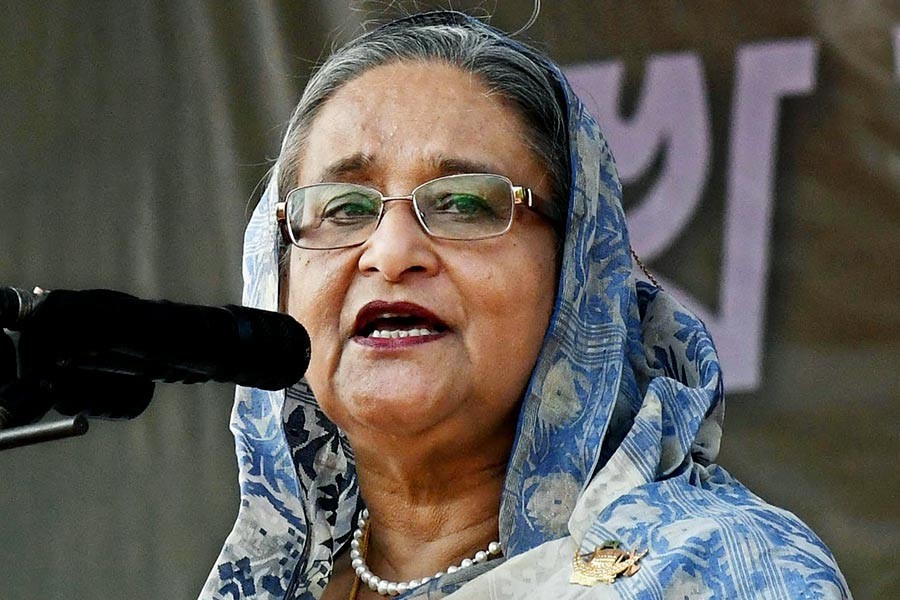Prime Minister Shaikh Hasina's announcement in parliament on Wednesday on abolition of the quota system for recruitment in public service comes as a great relief to all. Students have been demanding a 'thorough reform' to this system. The Prime Minister has gone one step further. She has declared abolition - not reform - of the system itself, barring some exceptions that are yet to be spelt out in clear terms. The protestors have immediately put a halt to their movement, while stating that they would decide their next step after reviewing the situation. It is now all quiet after three days' widespread protests, police actions leading to casualties and sporadic violence. Meanwhile, some quarters did resort to acts of vandalism which, however, had no relevance to the programme of the students.
It is a pity that a subject of not only academic but also of national interest and importance was made contentious. The Public Service Commission (PSC), in all its annual reports presented to the Head of State since the early nineties, has been recommending for reforms to the quota system. Indifference to such recommendations has not helped the cause. In fact, adoption of a pragmatic view on the matter was warranted a long time ago. The situation has now changed, after the Prime Minister's announcement on the abolition of the quota system. Expeditious follow-up actions will now be critically important. The demand, voiced by both eminent citizens and educationists for rationalising the recruitment process for public service, does also lend urgency to this. Under the system that was prevailing since long, fifty-six per cent of the civil service jobs were reserved for various groups. That meant that only 44 per cent were up for grabbing by the top grade candidates. This certainly is a disservice to merit. A country's civil service in particular needs to attract and accommodate highly talented people to serve the nation both on the home and international fronts.
When the quota system is justified as an affirmative action to pull the backward communities out of their confines, distributing favour at the time of recruitment is not a wise policy by any means. What serves them better is to facilitate their education and nutritional status by making special investment in the form of stipend or similar other arrangement in education and health. Once children of the underprivileged segments of society get a minimum level of standard education, they can be provided with jobs they can perform. No one with poor academic results is expected to excel in civil service. Only small concessions in terms of merit and aptitude can be made but a large gap cannot be made up.
What suits the nation's interest best, in complex matters about recruitments of personnel for public service, can still be debated. But a situation where 'quota' predominates 'merit' in the recruitment process, is certainly not tenable. The 'overhaul' of this system, therefore, remains a priority for action. While this is done, it must be admitted that there are some areas where some readjustments are also necessary, keeping in view the suggestions of experts in the field of public administration as well as the academia. Besides, recruitment systems prevalent in many other countries merit analysis so that necessary lessons may be drawn from their experience.


